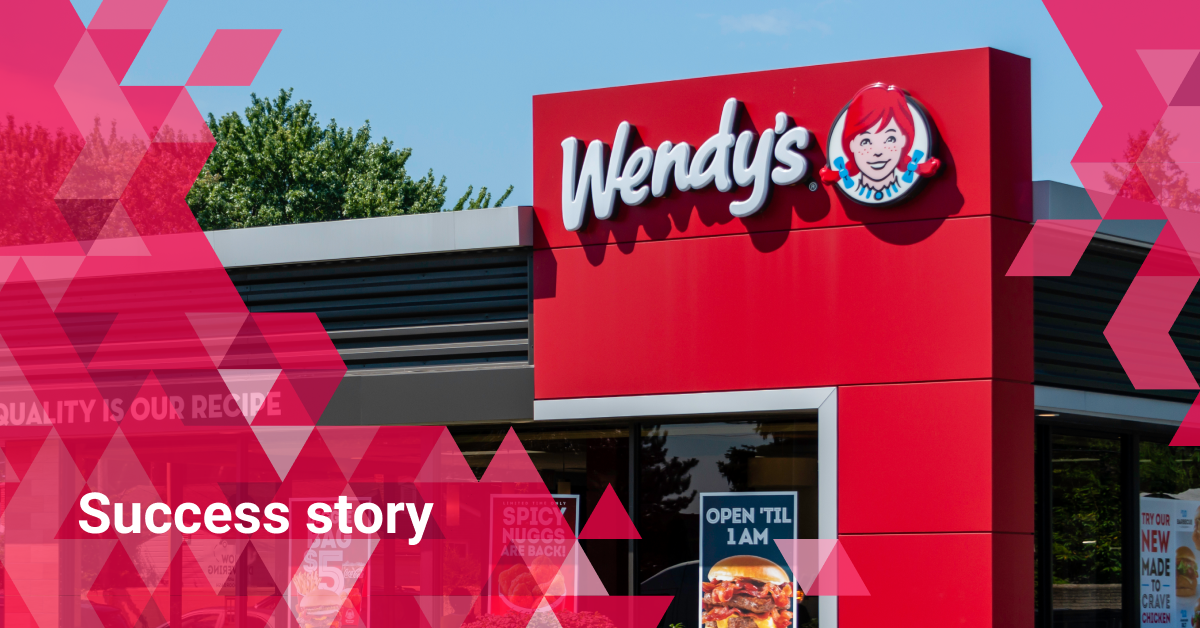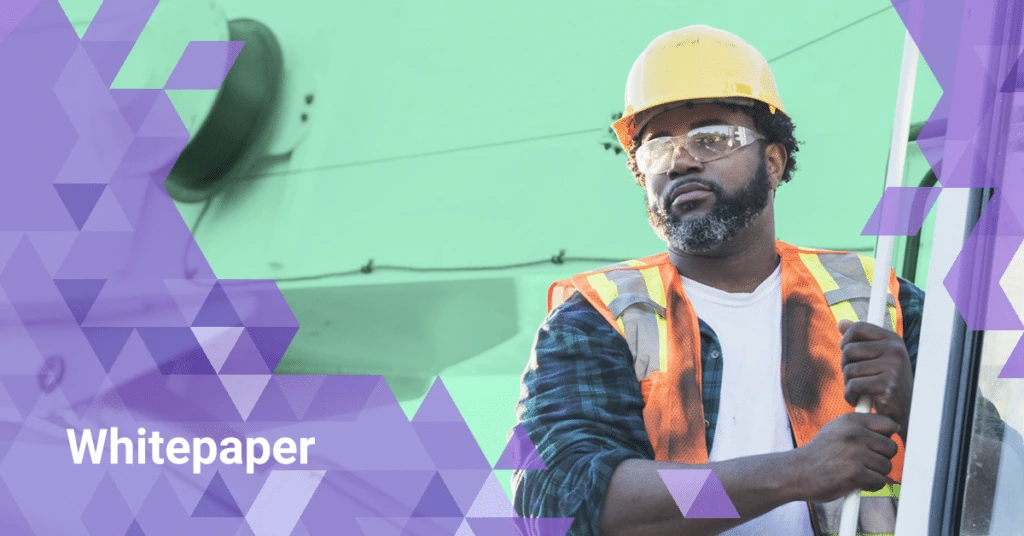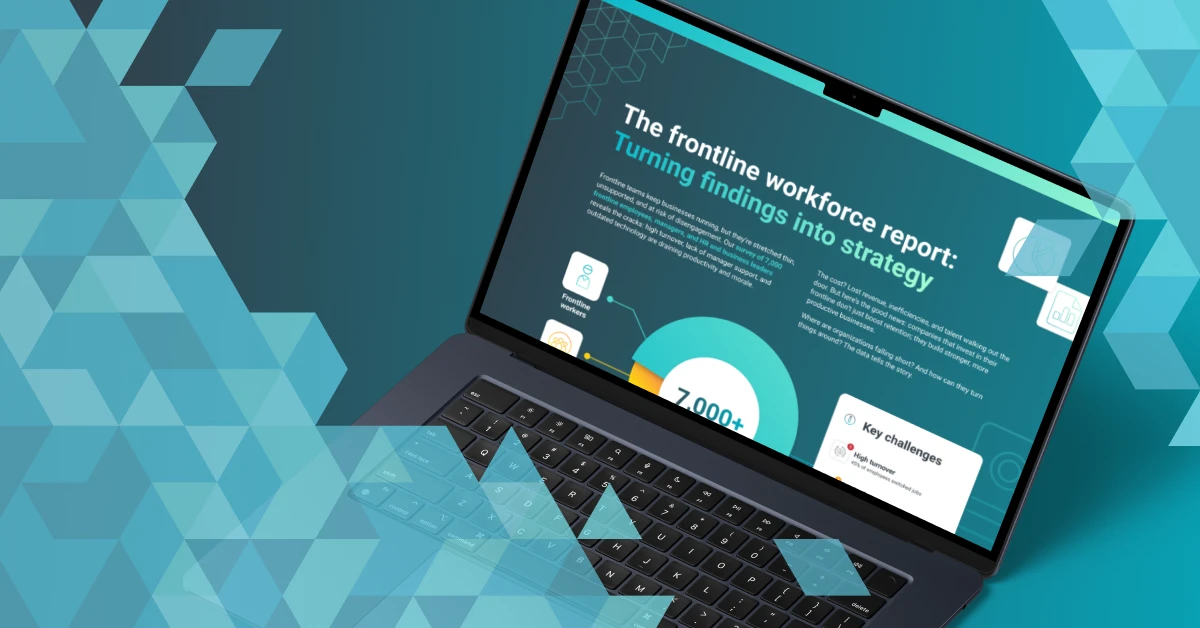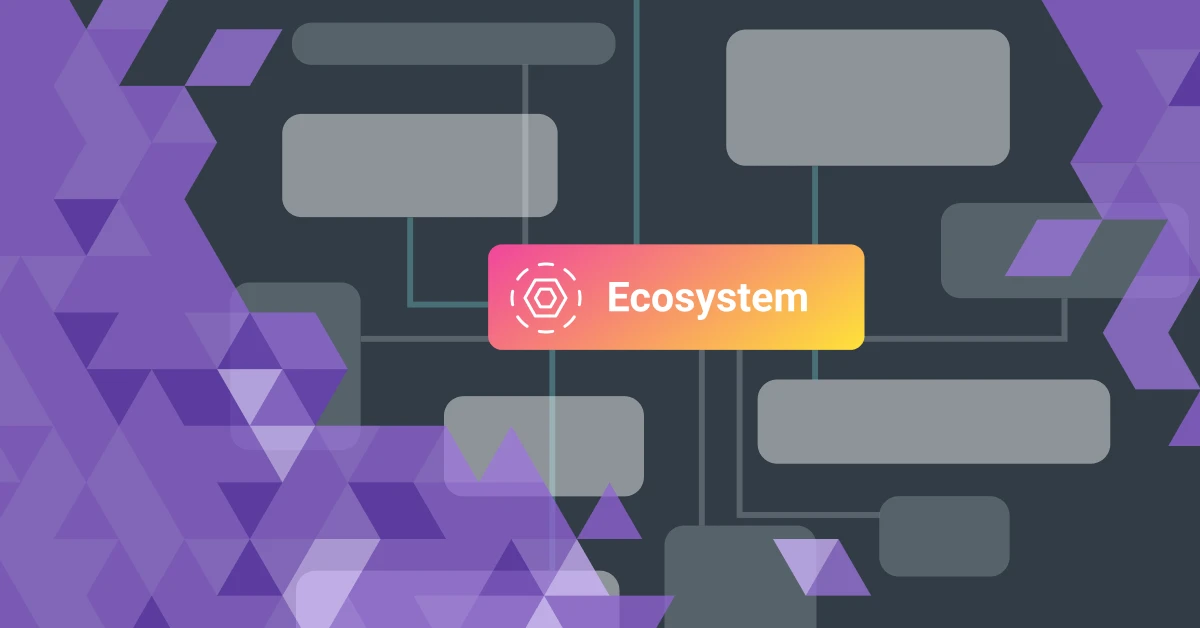COVID, Understaffing, and Stress: Frontline Workers Need More Mental Health Support

It’s mental health awareness month. After over two years of living through a pandemic, social unrest, and unprecedented working conditions, we’re examining how all these factors have impacted the mental health of frontline workers.
In the face of an ongoing labor shortage, more and more companies are prioritizing the well-being of their frontline, hourly workforces (hooray!) But is it enough to offset the mental toll that essential workers have taken on?
Keep reading to learn more about the state of mental health for the frontline, and how companies are working to better support the physical and emotional needs of these mission-critical workers.
Frontline employees – like healthcare workers, grocers, pharmacists, cashiers, delivery drivers, etc. – have heroically faced the pandemic head-on. Many times, they’ve even put the health of others ahead of their own.
Collectively, frontline workers have carried the responsibility of:
- Handling their own stress and mental well-being throughout an extraordinarily challenging time
- Keeping themselves, strangers, and their families healthy
- Working long and laborious hours to keep their communities functioning
- Bearing the brunt of others’ stress and frustration
- Lacking the technology they need on the job to receive important updates and communicate effectively
But, the weight of those responsibilities is impacting our most essential employees’ mental and emotional wellbeing.
According to the Kaiser Family Foundation:
- 53% of adults in the US have reported negative effects on their mental health as a result of worry and stress over the coronavirus outbreak
- Those negative impacts include trouble sleeping or eating, increased alcohol or substance abuse, and worsening chronic conditions
- More than one in three adults have reported symptoms of anxiety or depressive disorder during the pandemic, an increase from one in ten from January to June 2019
During the pandemic, many frontline workers in customer-facing roles also experienced verbal abuse from customers – compounding the mental health stressors they had to deal with.
Research by USDAW found that one in six retail employees now suffer abuse on a daily basis because of the pandemic.
Since the onset of the global pandemic, businesses have been stepping up to provide critical mental health support to meet their employees’ needs.
According to HRZone:
“Finding ways to better support customer-facing employees with ways to decompress, relieve stress, and protect staff from abusive customers should be high on your employee wellbeing strategy.”
Here’s a few ways businesses can build their employee wellness strategy and get their frontline workers help.
3 Tips For Supporting Your Workforces’ Mental Health Needs
With the pandemic placing added stress on our frontline workers, more companies are seeking to normalize mental health support in the workplace.
Let’s deep dive into some tips on how to better help employees’ overall mental and emotional wellbeing.
1. Energize Your Workforce With EMQ Boosters
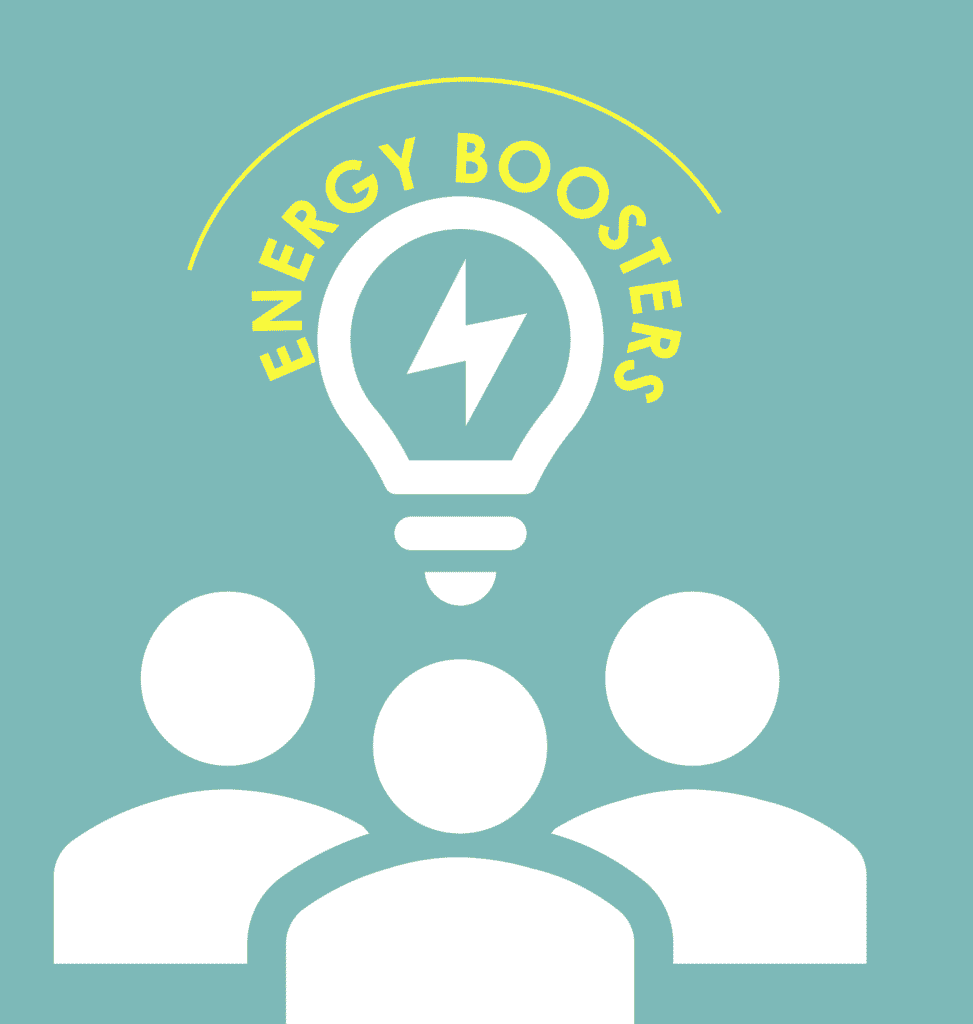
EMQ, or the Energy Management Quotient, is all about providing employees with techniques to better manage their energy.
“EMQ is the first self-administered, evaluation-based diagnostic and development system that accurately identifies a core set of mental and behavioral blockers to how well someone is channeling their attention and energy, and then constructs a hyper-personalized plan that sheds negative thoughts and sabotaging habits, increasing mental toughness, emotional fitness, and behavioral wellbeing.”
– Sourced from theemq.com
EMQ Energy Boosters are interactive, virtual sessions in which employees identify behaviors that need to be upheld, nurtured, or reinvented to:
- Increase their mental toughness
- Strengthen overall emotional fitness
- Increase mental capacity and work performance
- Reduce stress and overwhelming feelings
Essentially, in EMQ Boosters, employees learn practical, powerful mental health techniques to create an energized lifestyle, defeat stress, and most importantly, thrive in the world they live in.
EMQ Boosters are just 45 or 90-minute in duration, focusing on powerful life and mind hacks that all take less than three minutes to be completed on their own. Each technique leaves employees with self-awareness, insights, tools, and stakeholder data to help companies better understand their employees’ needs.
In these unprecedented but fast-moving times, frontline workers need solutions that are:
- Promoting emotional well-being as a priority
- Bite-sized in content and time commitment
- Proven to reduce stress
- Instantly beneficial by increasing mental capacity
…like EMQ Boosters.
“I participated [in EMQ Boosters] and loved it! I can’t recommend it enough to people. It gave me great insights into how I can better use my own energy during these unique times.”
– EMQ Booster Participant
Following EMQ Boosters, employees report experiencing reduced stress, feelings of overwhelmingness, and anxiety – which can lead to healthier, happier lives and better work performance.
“I’m much more aware now of how to leverage my energy states so I can maximize my performance each day.”
– EMQ Booster Participant
Other benefits of EMQ include:
- Healthier, more fulfilling relationships
- Improved attention and overall well being
- Increased resilience and stress management capabilities
- Sustained positivity and personal fulfillment
- Improved creativity and solution building
- Aligned thoughts focused on respect, compassion, and kindness
Help your workforce get back its energy by getting started with EMQ Boosters today!
2. Streamline Access to Important Information
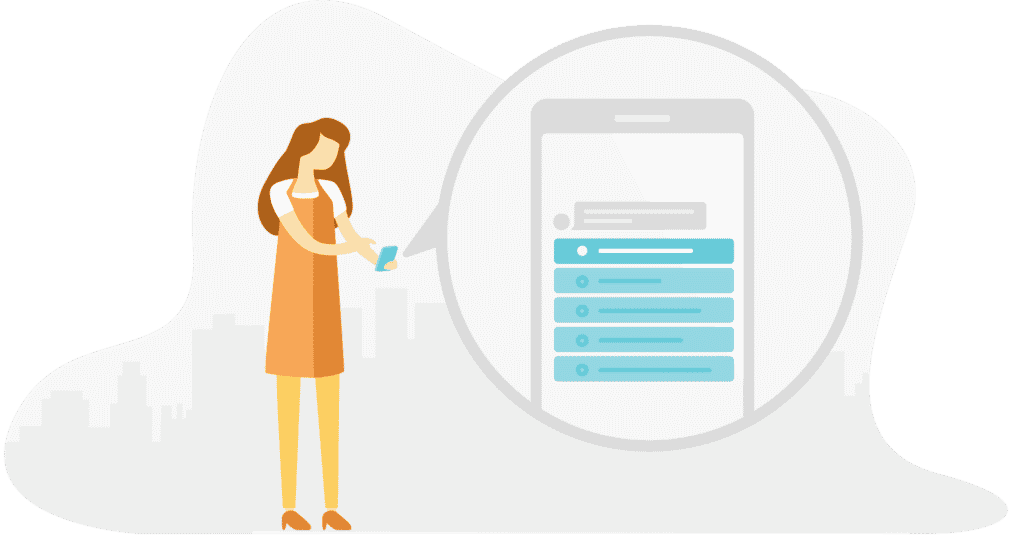
Frontline workers are constantly required to adapt and adjust to sudden changes in their work environment.
Common changes often include:
- Seasonal and temporary employees during tourist and holiday seasons
- New, sometimes longer, working hours due to being short-staffed
- Updated policies and procedures
And this year, even more changes are expected as the world continues to navigate restrictions, health, and safety protocols, and ongoing labor shortage challenges.
So, it’s essential to make sure employees have easy access to the information they need to reduce the stress of these sudden changes.
One way to do that is through an internal, centralized communication platform built for frontline employees – such as Beekeeper. Mobile employee communication apps are a great place to store important information frontline workers need. Streamlining and simplifying access to information can significantly reduce stress and confusion for essential employees.
And, that information can (and should) include mental health support, such as:
- Direct access to employee assistance program or health plan documents
- Health and safety protocols for being onsite at work
- News and suggestions supporting employees’ emotional wellbeing
- Ways employees can connect with their HR teams to better understand what resources are available to them
Additionally, SHRM recommends more innovative approaches to help employees know they aren’t alone when coping with stress and anxiety, such as:
- Creating and sharing digital toolkits that help employees operate productively (for frontline workers, these resources are best shared through an internal mobile app!)
- Providing training to managers to help them react to employees that are having concerns
- Sharing video messages from leaders talking personally about how the pandemic has affected them and their wellbeing – and what they’re doing to support their health needs
- Sending surveys to employees as a wellness check-in to better understand how your workforce is doing
3. Provide Helpful Resources

Companies are not only stepping up to provide streamlined access to critical health information, but they’re also providing new resources to get employees the support they need.
For example, some companies provide mental health resources through free access to mobile apps, like Headspace and Moodfit, that focus on reducing stress and anxiety.
With enterprise-wide subscriptions to health-related apps, employees can access the resources they need on their own time. This enables them to get the resources and support they need at home, before they start their shift, or once they’ve clocked out for the day.
Companies are also sharing information on organizations, like The Care Collective in St. Louis, that are giving free therapy sessions for first responders and frontline workers within their local areas.
There are many different ways workers – especially those on the frontline – can get support. So, it’s vital that employers are sharing this information regularly and helping essential employees get the help they deserve.
Pro Tip: Let’s also not forget the importance of employee recognition and praise! A simple shout out to your team can go a long way towards boosting morale and making hourly workers feel appreciated.
Jon Thurmond, host of the #HRSocialHour Half Hour Podcast advises,
The shift to remote work has left many employees feeling isolated and then have “Zoom fatigue” as video meetings filled our calendars. There are tech platforms that address stress and depression, from offering access to counselors to wellness programs to improve physical and mental health. Consider employee recognition tools as well. A “thank you” and acknowledgment of the challenges we’re facing can go a long way.
– Jon Thurmond
Examples of Companies Supporting Workers’ Mental Health
There are plenty of real-life examples where companies are supporting their workers’ mental health. Let’s dive into a few of them.
Walgreens
Walgreens has long supported mental health programs for its employees. Since the onset of the pandemic, their efforts have increased by providing employees with:
- Five cost-free hours of counseling
- Teletherapy access to certified therapists
Additionally, the company encourages employees to use Sanvello, a mental health app that provides support through self-care, peer support, coaching, and therapy techniques.
Starbucks
Similarly, Starbucks partnered with Lyra Health to provide its US employees and eligible family members with access to 20 sessions per year with a mental health specialist. The company also ramped up its employee benefits packages to include free access to Headspace, a meditation app, and training to store managers to support employees struggling with their mental wellbeing.
Culligan Water
Finally, Culligan Water, a water treatment company, has provided various methods of support to employees throughout the pandemic, including:
- Providing 1:1 access to health coaching for employees and their spouses
- Promoting weekly self-care videos
- Sharing live meditation sessions
- Setting up manager wellbeing calls
- Sharing weekly well-being communications with employees
- Encouraging resilience and stress management activities
Additionally, the company’s leader shared a testimonial video to all employees discussing how he supports his own mental health. According to Mental Health America (MHA), Culligan Water uses these leadership messages to inspire and empower its employees to make their mental health and overall wellbeing a priority.
Now more than ever, we must stand together and support each other. Remember to thank your cashier at the grocery store. Ask a store security guard how they’re doing. Let the frontline workers who have been keeping our society functioning during one of the most challenging times in global history know they’re seen, they’re important, and they’re appreciated.
Want to learn more employee engagement tips for your frontline employees? Download our free guide!

About the author
Beekeeper
Interested in learning more?
Join 1200+ companies transforming frontline work with Beekeeper. Start your journey today to make every task easier, every team stronger, and every shift smoother.
